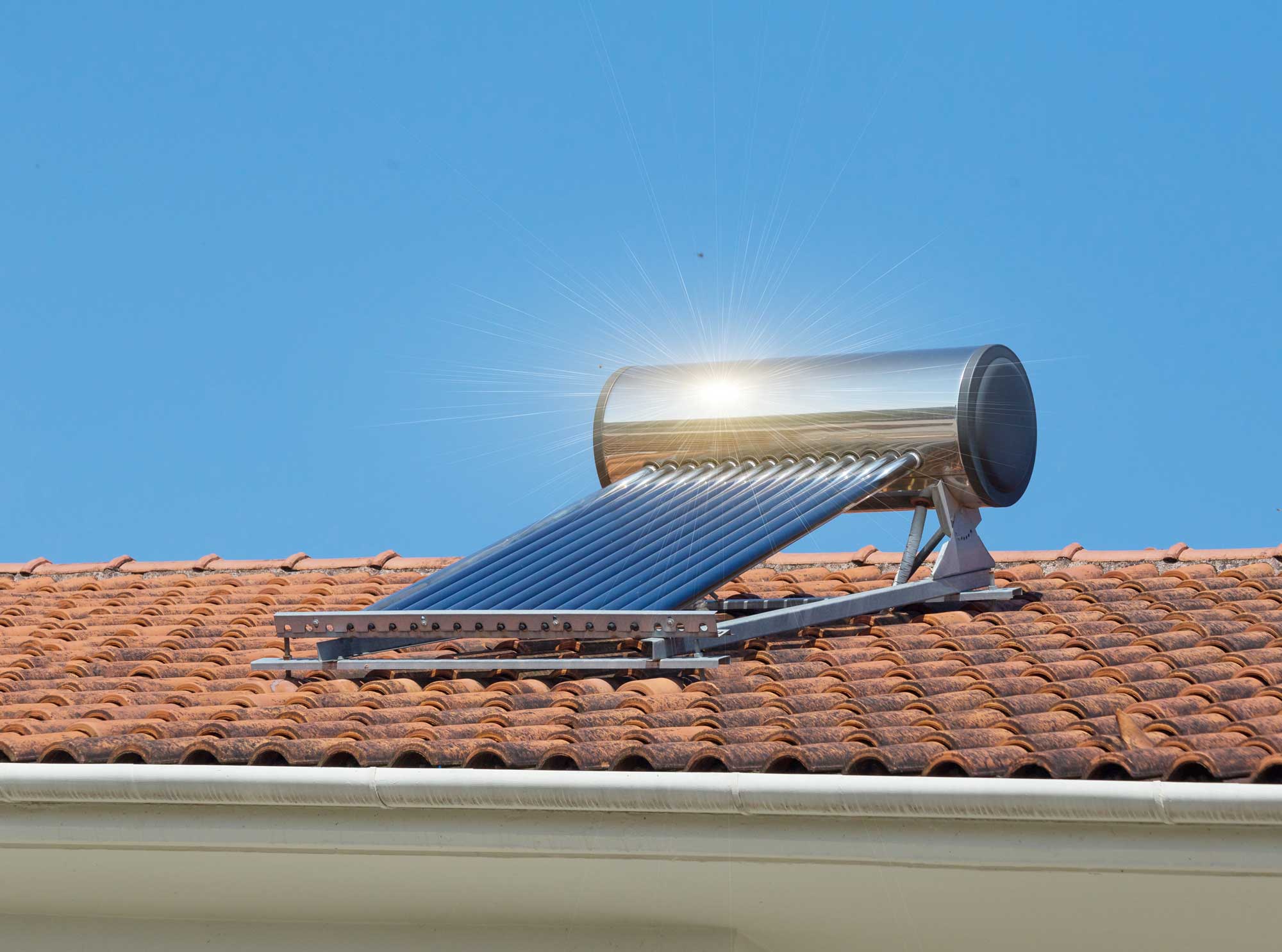As the world increasingly embraces sustainable energy solutions, solar water heaters have emerged as a popular choice for environmentally conscious homeowners. By harnessing the power of the sun, solar water heaters provide an efficient and renewable source of hot water. In this article, we will explore the benefits of solar water heaters and why they are a smart investment for both your wallet and the planet.
1. How Solar Water Heaters Work:
Solar water heaters utilize the sun’s energy to heat water for various household uses. The system consists of three main components:
a. Solar Collectors:
Solar collectors, usually mounted on the roof or other sun-exposed areas, absorb sunlight and convert it into heat. These collectors can be flat-plate collectors or evacuated tube collectors, both designed to capture solar radiation effectively.
b. Heat Transfer System:
The heated fluid or heat transfer medium, such as water or a non-toxic antifreeze solution, circulates through the solar collectors, absorbing the sun’s thermal energy. It then transfers this heat to the water in the storage tank.
c. Storage Tank:
The hot water is stored in an insulated tank, ready for use whenever needed. Depending on the system design, there may be additional components such as backup heating elements or a preheating tank for supplemental heating during periods of low sunlight.
2. Advantages of Solar Water Heaters:
Investing in a solar water heater offers numerous benefits for homeowners and the environment:
a. Cost Savings:
Solar water heaters can significantly reduce energy bills by utilizing the sun’s free and abundant energy source. Depending on factors such as location, system size, and usage, savings on water heating costs can range from 50% to 80%.
b. Renewable Energy:
Solar water heaters harness clean and renewable energy, reducing reliance on fossil fuels and reducing carbon footprint. By utilizing the sun’s power, they contribute to a greener and more sustainable future.
c. Energy Independence:
Solar water heaters provide a level of energy independence, reducing dependency on the electrical grid or other energy sources. This is particularly advantageous in remote areas or during power outages.
d. Long-Term Investment:
Solar water heaters have a long lifespan, typically ranging from 20 to 30 years with proper maintenance. This long-term durability makes them a wise investment, providing cost savings and energy efficiency over the system’s lifespan.
e. Environmental Benefits:
By using solar energy, water heaters reduce greenhouse gas emissions associated with traditional heating methods. This helps combat climate change and contributes to cleaner air and water for the community.
3. Maintenance and Considerations:
To ensure optimal performance and longevity of your solar water heater, consider the following maintenance tips:
a. Regular Inspections:
Periodically inspect the system for any signs of damage, leaks, or malfunctioning components. Check the collectors for debris, such as leaves or dirt, which can affect their efficiency.
b. Maintenance of Backup Systems:
If your solar water heater has a backup heating element, ensure it is functioning correctly and well-maintained. This ensures hot water availability even during extended periods of low sunlight.
c. Professional Servicing:
Schedule professional servicing to perform system checks, including pressure testing, fluid replacement, and overall performance evaluation. Professional maintenance helps identify and address any potential issues before they escalate.
d. Government Incentives and Rebates:
Research and take advantage of any available government incentives, tax credits, or rebates that may apply to the installation of solar water heaters. These incentives can help offset the initial investment cost.
Conclusion:
Solar water heaters offer a sustainable and cost-effective solution for obtaining hot water while reducing environmental impact





